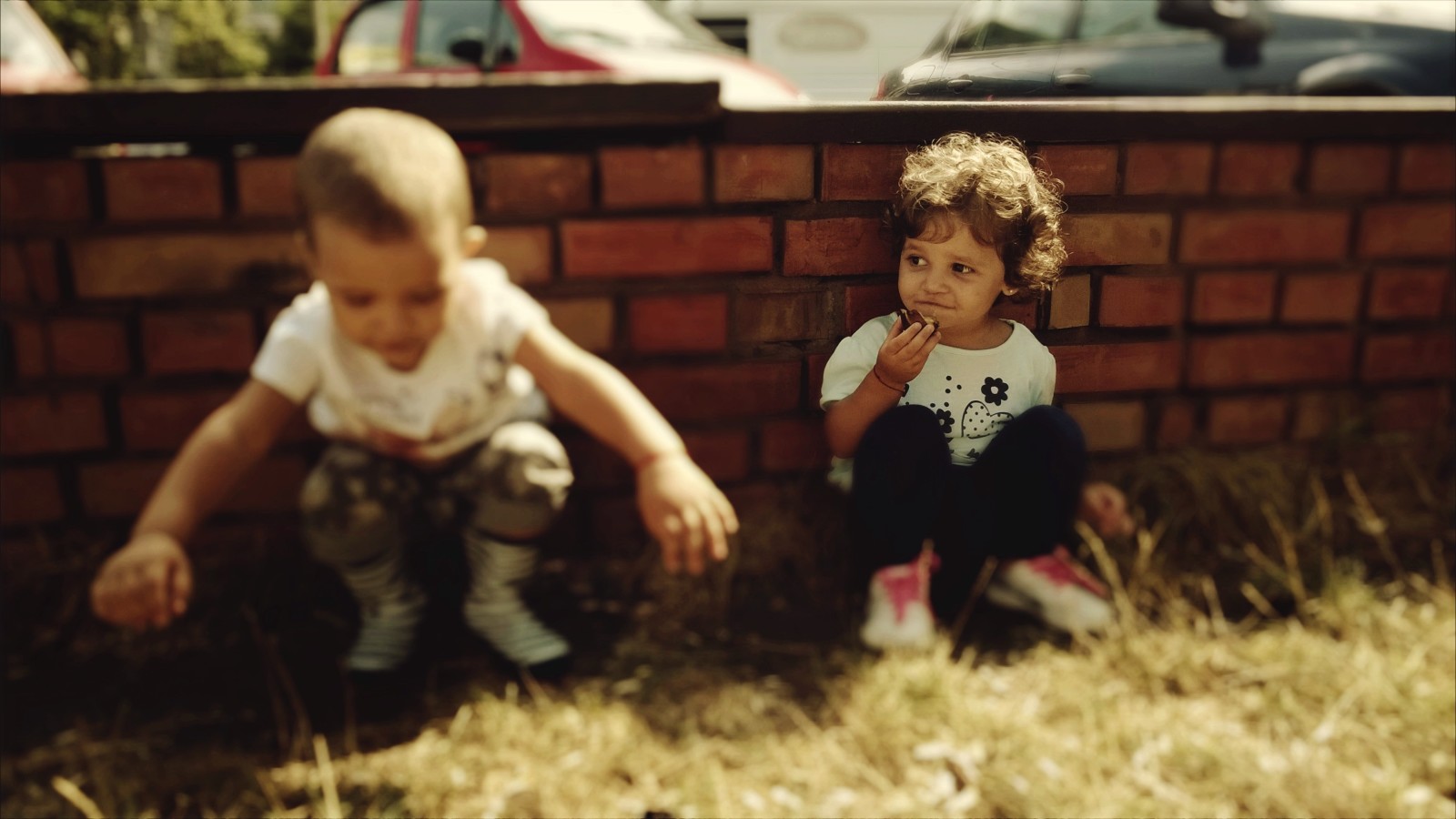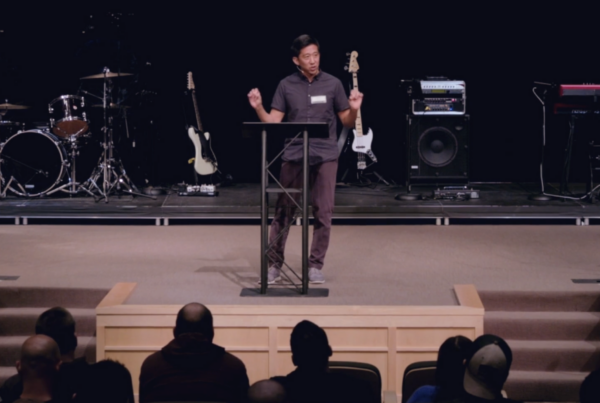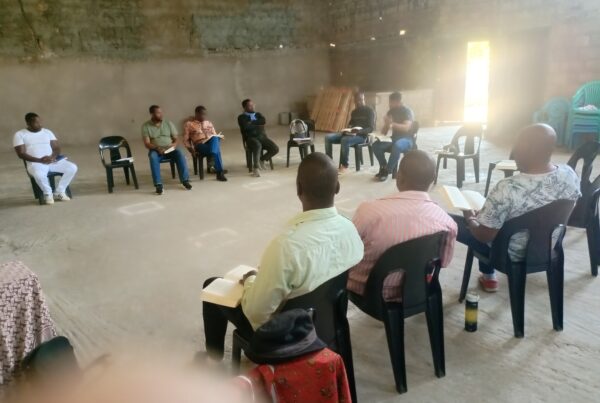This article was originally posted on New Churches and is used with the author’s permission.
When I talk with pastors about developing church planters from within their own churches, this is one of the most often cited ‘obstacles’ that I hear: they want to do it, but they don’t have anyone to train.
I’m sympathetic to that. And perhaps to some extent it’s true. I don’t know their context, or yours, but I think the problem with this ‘obstacle’ is it isn’t that legitimate.
What I mean is this, if you have people, you have potential church planters. If you have people, you have people to train.
If you have people, you have potential church planters.
I think what we often mean when we say “we don’t have anyone to train” is “we don’t have anyone that is already trained and knows they are called to plant a church, comes fully funded with a core group of 300, throws like some strange Keller Chandler mashup pastor-preacher…oh, and can also lead music better than Crowder.” Now that may be a very slight exaggeration, but I think the point is valid. Our working definitions, or assumptions, of who we can, or should train to plant churches, is far too restrictive. When looking for church planters we need to enlarge our aperture and look at our congregations and city with a wide angle lens.
One Of These Kids Is Going To Change The World
I recently saw a Microsoft commercial that featured a bunch of kids doing kid things. One little guy pretending to be a robot in a homemade aluminum jumpsuit. A little girl afraid to jump off a diving board. A few kids running to catch a bus they missed. And all these kids built towards the theme; “one of these kids is going to change the world.” I love this commercial. Such bold confidence to see a world changer out of group of kids years away from actually changing the world. I wonder how things would shift if when we looked out at our local churches, we didn’t focus on where people are currently but where, by God’s grace and the work of the Spirit and a lot of hard work, they can get.
Take A Stroll Through Your Kids Ministry
Next time your church gathers, take an intentional prayerful walk through your kid’s ministry (or whatever is equivalent). This will serve you and your church in a few ways. One, it will help people know you value this vital area of the church. That in itself is worth doing. But, second, in regards to training and sending church planting teams, you are scouting future church planters. Look at these rooms filled with babies and toddlers and six-year olds stealing toys and smacking each other and ten-year-olds praying and eight-year-olds turning every craft, no matter what the craft, into a weapon of some sort, and say this line to yourself: “One of these kids may change the world.” Say the line again and again and ask God for faith to believe it.
What To Look For
We can’t only work with those already trained & ready to go, or we’ll have almost no one to work with.
Pete, one of our church planting residents and the director of our college mission, THE242, uses the acronym F.A.T. (at least he used to until we asked him to stop because he was going to give someone a complex) to determine who he’s looking to train. I’m not sure if Pete came up with it but what it stands for is great. He is looking for those who are Faithful, Available, and Teachable. But often what we look for is F.A.S.T, or Faithful, Available, Skilled, and Teachable. We want ready made leaders and church planters. And that desire is okay; I want to send ready-made church planters too. I’m all for working with those in our church that are already trained and close to ready to be sent out. But, we can’t only work with those already trained and ready to go, or we’ll have almost no one to work with. We need to, no, we get to, work with those that are right in front of us regardless of how trained up they are. Why? Because one (or more) of them may change the world.
Train Everyone And Then Call The Trained
How about “train everyone, and then ‘call’ the trained.”
I’ve heard the line “train the called” many times. I agree wholeheartedly. What a privilege to train those that feel “called” to plant or lead churches. But let’s not stop there. How about “train everyone, and then ‘call’ the trained.” A wide-angle-panoramic-big-lens-church will want to train everyone, especially those that don’t yet know they’re called to plant a church. If we only develop church planters from those that want to be church planters, we might miss out on those that can be church planters and just don’t know it yet. But, if we put systems in place such as intentional discipleship pipelines, and do a lot of seeding and scouting we will unearth and develop many more men and women that can serve as lead planters and church plant team members than we ever thought possible. And the whole “I don’t have anyone to train” obstacle will be removed.
Let’s go back to Pete. He was baptized in our church at age 20 on Easter. The following year he was dumped into a hip hop Bible experience/outreach where another one of our church plant residents, and now Boston church planter, Claude Atcho (shameless plug to support his work: redeemerne.org), was leading. Claude began to work with Pete, sharing various tasks and providing opportunities to grow as an ambassador for Jesus. What Claude did was seed planting and continued to scout. Pete didn’t know it yet, but we all had a wonderful plan for his life. The following year we dumped Pete into a year long development track we call Gospel Immersion. More seeding and more scouting and a lot more training. Towards the end of the year, Claude took Pete out for breakfast and asked nine simple but powerful words, “have you ever thought about being a church planter?” Pete’s immediate response was, “No.” But, that question started stirring something in Pete who didn’t feel called and never thought about getting trained to plant and after a few months of prayer and discussion his answer changed from “no” to “maybe.”
A Maybe May Be Good Enough
With this real ‘strong’ maybe in hand, Pete jumped into our two year Church Planting and Pastoral development program. Our church then brought him on as a full time church planting resident and we worked with him to launch our college mission as he continued to develop as a leader and future church planter.
He went from “No, I don’t feel called” to “I’m giving my life to preaching the Bible, planting churches, & training men.”
Beyond Pete’s own spiritual, personal and professional development, as well as all the amazing stories of salvations and baptisms and leadership development happening with THE242, God has allowed us to unearth another potential church planter in Pete. He went from “No, I don’t feel called” to “Maybe,” and now in his own words, “Unless someone stops me, I’m giving my life to preaching the Bible, planting churches, and training men.”
If we looked at Pete and all we saw was a 20-year-old dripping wet from baptism, I’m not sure he would be planting. (Aside: I fully affirm the sovereignty of God in all things so if God wants him to plant or sprout a third arm he can and will do it. I’m just trying to talk about our role as God’s means to accomplish his purposes). I hope we would have still discipled him but I’m not so sure he would be pursuing church planting if our church only trained the called or had narrow definitions of who we should train to plant churches.
Who knows, God may use Pete or me or Claude or you or some eight-year-old in your church who is currently nodding off while you preach, to change the world. Let’s go find them and train them and not just wait for the already called to show up at our churches and fill out our residencies.










